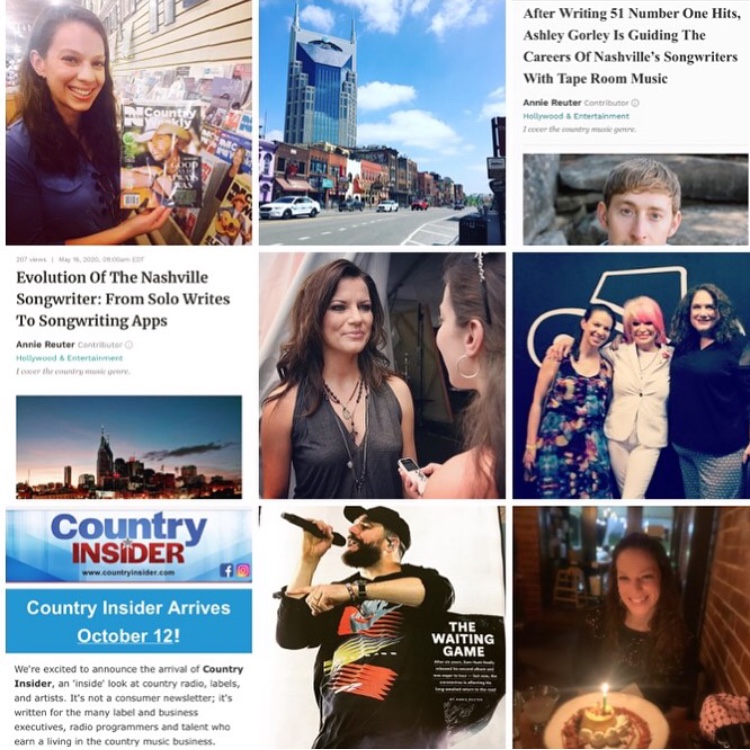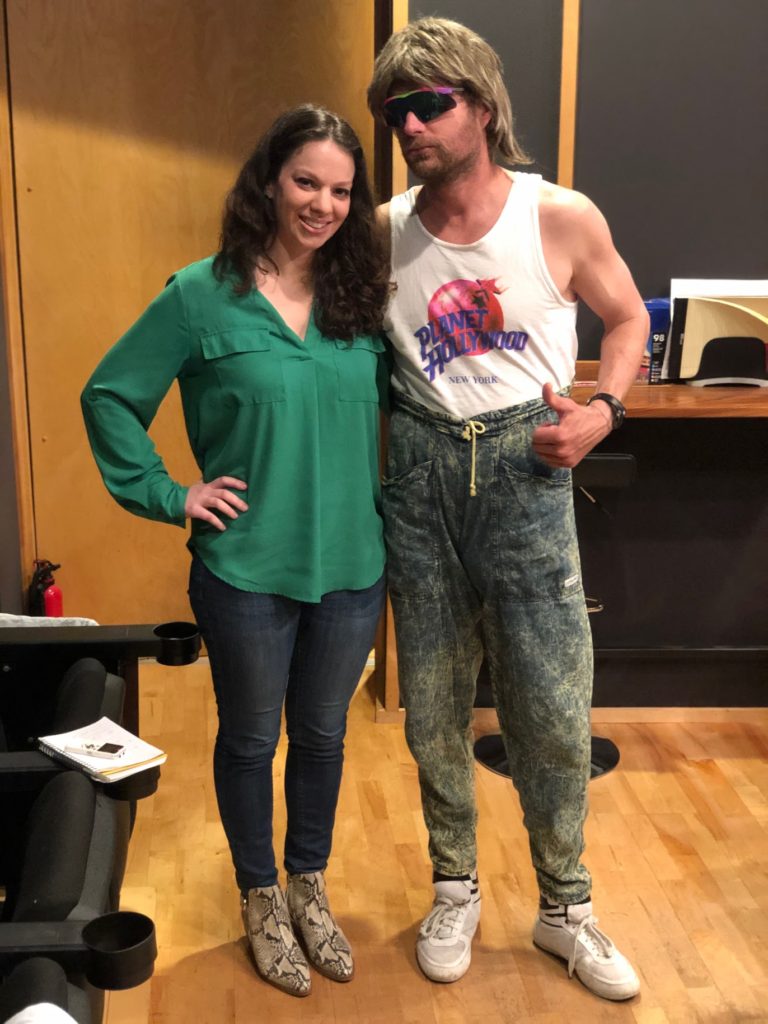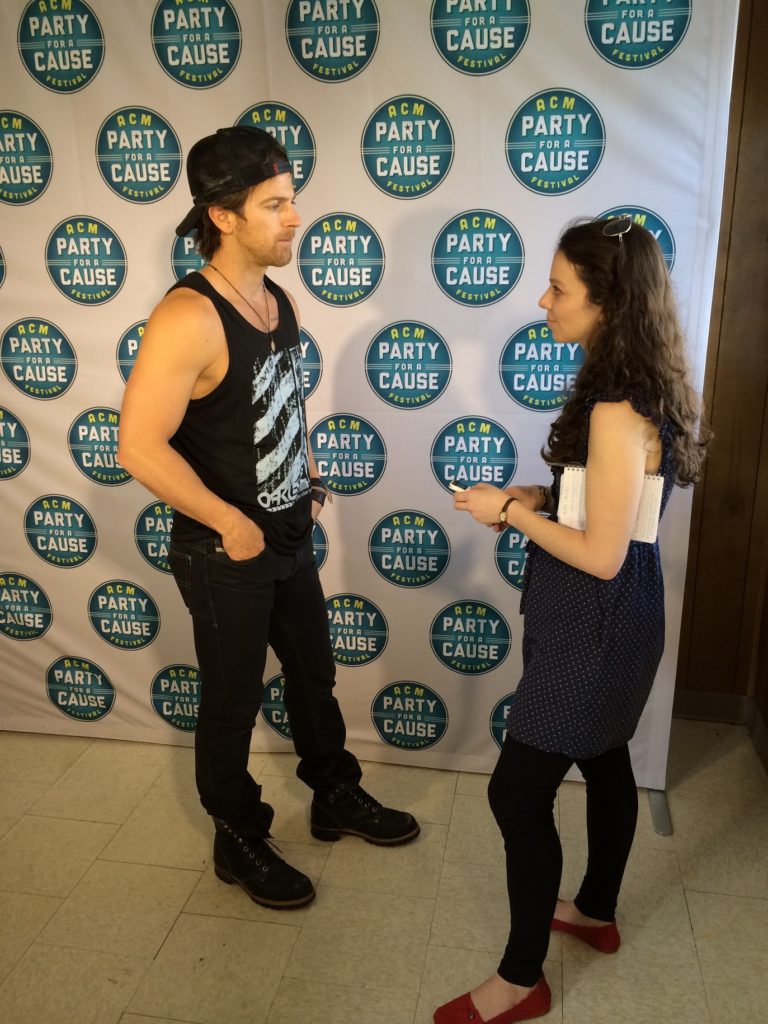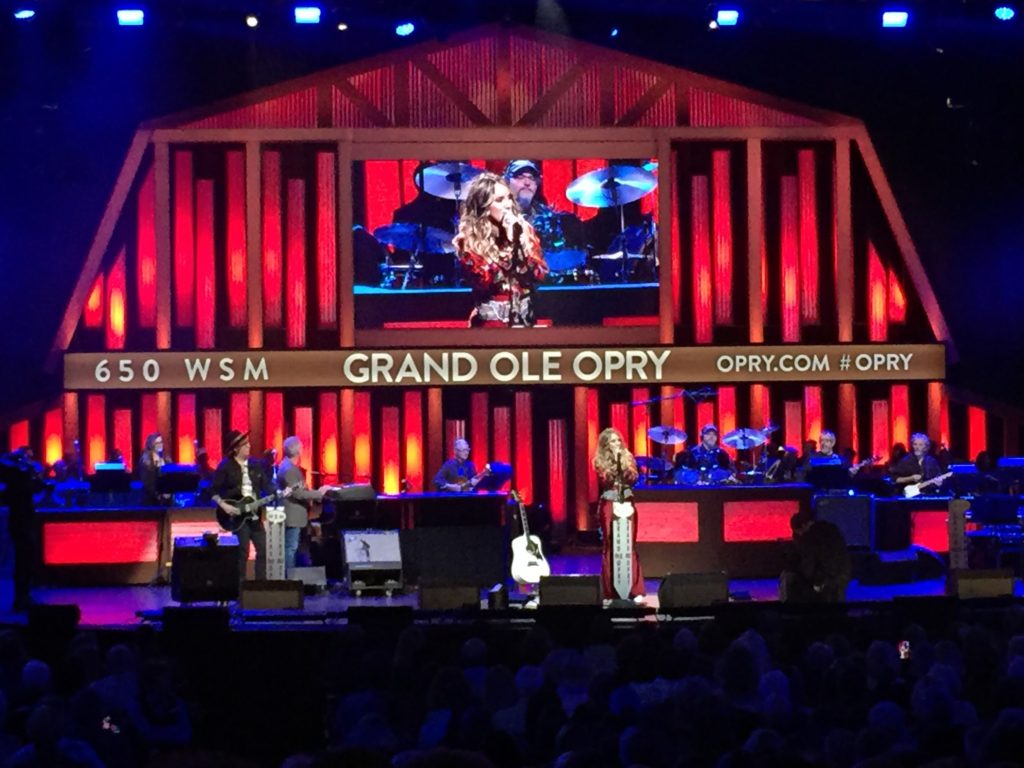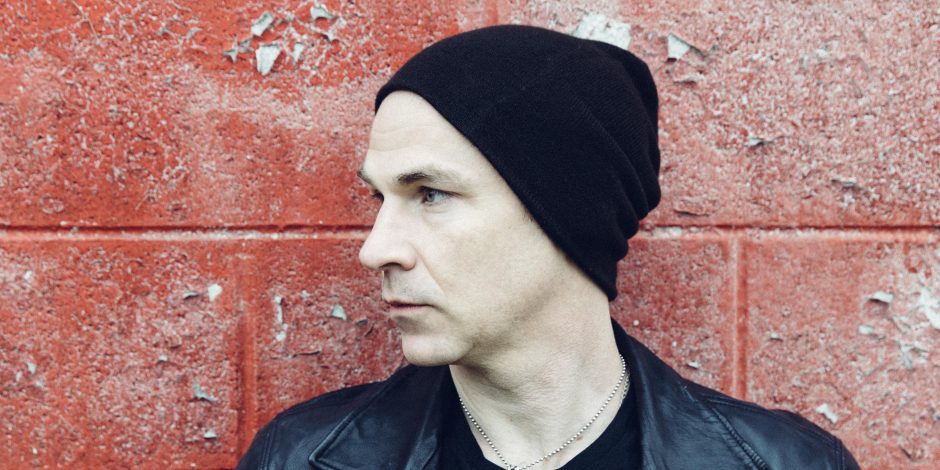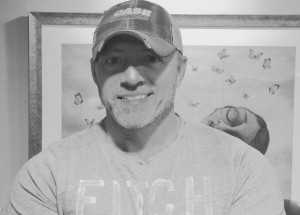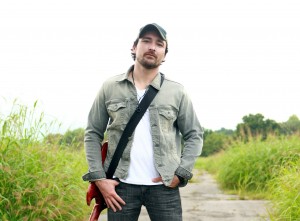It’s no secret that I’ve been a massive Kip Moore fan for a decade now. Someone on Twitter recently asked about my first interview with Kip, so I dug into the archives to find our first official sit-down in November 2014. Ahead of his “CMT Up In Smoke Tour” stop at New Jersey’s Starland Ballroom, Kip and I chatted backstage about Bruce Springsteen, new music and his dedicated fan base.
It was home turf for me as throughout college I’d frequently attend shows at Starland Ballroom and even got my start interviewing bands at the venue! After soundcheck I followed Kip backstage to catering and then to a room with a big screen TV and leather couches where his band was hanging out. In between dinner and watching the news–which was reporting on the massive snowstorm in upstate New York at the time–Kip filled me in on his latest EP Soundcheck and what to expect from 2015 sophomore album, Wild Ones.
He had released Soundcheck, a five-song live EP featuring four brand new tracks, two days before his tour kickoff that September. The release was aimed at his fans, and he told me that he hoped the new music would hold them over until his sophomore album was released sometime the following year. Below is the story I wrote for Radio.com from our interview.
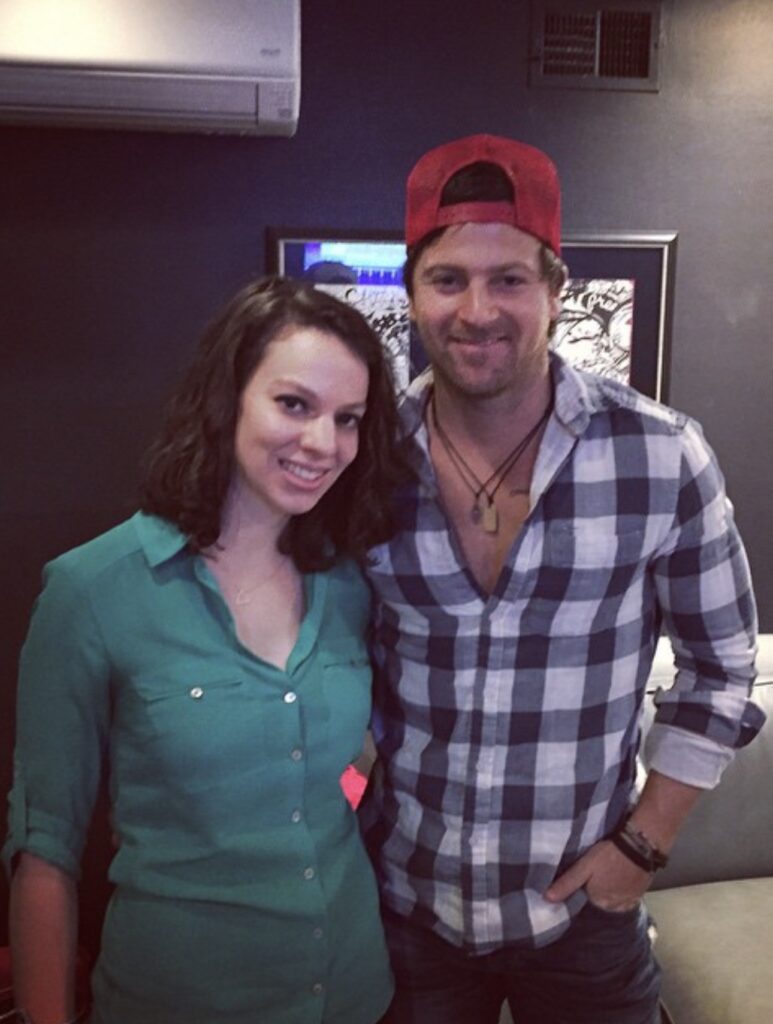
Interview: Kip Moore Explains New Album Delay & Praises The Boss: ‘Springsteen Gave Me Hope’
Kip Moore is just two dates away from the end of his first major headlining tour, the CMT Up In Smoke Tour with Charlie Worsham and Sam Hunt. Each night before the show a select number of his diehard fans are invited to attend soundcheck, where he plays some of his unreleased songs that might wind up on his sophomore album—or, in some cases, a song he wrote that very morning.
Radio.com headed to Starland Ballroom in Sayreville, NJ on Nov. 20 to catch up with the country singer and watch his soundcheck, where he fittingly covered Bruce Springsteen, gave some insight into his songwriting (“I try to write the most real that I can”) and took fan requests.
“This is a chance for the real fans to come here and listen to some new songs that are not on the radio,” Moore said before a fan requested “Comeback Kid.” “Of all the songs that I recorded for this new record, that’s probably the most special to me on the whole album. I can’t wait for people to hear that track and hear space in music.”
Earlier this year, Moore told us the story behind the song, which he said will “strike the core of blue-collar America.” During our interview in New Jersey, he reiterates how important the song is to him.
“I feel like every now and then you land on a special recording,” he says of the track. “It’s about anybody in life who has passion of trying to be more, make more out of their life from where they are at that particular time and having somebody that believes in them at all times. Everybody needs that. And that’s what that song is about. It’s about the hardworking blue-collar people every day that are fighting for a dream.”
When asked who believed in him when he was fighting for his dream, he credits both producer Brett James and Bruce Springsteen as having a major impact on his career.
“Brett James, if we’re talking about somebody that stood by me and walked with me through the fire and never gave up on me. I owe a lot to him,” Moore reflects. “He’s never wavered on me when everybody else was wanting to cave in on me and had quit on me. He always believed in me.”
It’s no secret Moore also looks up to The Boss. He even covered his song “Atlantic City” twice that day at the Starland Ballroom, once during soundcheck and again when opening his show later that night.
Moore closed his soundcheck set raving about Springsteen, attributing him as “the guy that really saved my life and the life I was living.”
“You know, Springsteen gave me hope,” he says. “Gave me hope that I could get to where I was trying to get and also gave me comfort. It’s a scary thing to face yourself when you’re feeling like you’re irrelevant. That vulnerable feeling. His music gave me comfort to feel that way, but he also gave me hope into a better life.”
Much like Moore looks up to Springsteen, his fans look to Moore for inspiration—something that is difficult for him to believe. But it is knowing this that makes him work harder and has him choosing his lyrics more carefully.
“It’s awesome and it’s scary at the same time, because you realize how much weight your words hold. And when you realize your words hold that much weight, you actually think about what you’re saying a lot more,” Moore says. “It means a lot to me because that’s why I do what I do. I always wanted people to hear my music and I wanted it to impact them in a profound way, so now that it’s actually doing that it means a whole lot to me.”
Moore released Soundcheck, a five-song live EP featuring four brand new tracks, two days before his tour kickoff in September. The release was aimed at his fans, and he hopes the new music will hold them over until his sophomore album is released sometime next year.
“We’re pretty passionate about those songs. It was a cool way for giving the fans that have been waiting so long just a taste of what’s coming without actually exposing the record. A live version is not quite the same as a studio album,” he explains. “There definitely will be some of the songs [from the EP] that will make it onto the record.”
He has another special treat in store for fans attending the last two dates of his tour, too. He’ll be playing snippets of every track from his forthcoming record over the PA right before his set. He says he would have done this for the entire tour, but he’s not getting the final mixes of the record until this week.
And what about that record? A fan tweeted last week, “It took 20 years for a second Dumb and Dumber and @KipMooreMusic’s record label is trying to beat that with his second album.”
Moore, though, explains his record label isn’t to blame—in fact as he describes it, they’re “protecting” him.
“People need to understand this is not my record label’s fault,” he asserts. “To be honest, it all comes back on me. I wrote a song, ‘Dirt Road,’ that I thought was going to get further up on the charts and high enough to release a record around, but my label is protecting me in a lot of ways. In my own stubbornness, I just want to put the record out. They know what they’re doing, and it’s hard to release a record around a song that didn’t get past number 40 [Moore’s first three singles all reached No. 1]. And that’s just the fact of the matter.”
So, adds Moore, “hopefully we can come with something next time with some more traction and we can put a record out around it.”
Despite “Dirt Road” not seeing success on the charts and radio, it’s a fan-favorite at every show. Moore says everybody in the crowd knows the song, and for a track that only got to No. 48 on the charts, it’s an unusual thing.
“My fans know the music. I have real fans. They’re not fickle, fair-weather fans. They stick with me no matter what’s going on,” he says. “I’m not worried about them. I have to worry about myself and worry about creating music that’s gonna be heard. All I can worry about is me and what I can control is my music. Radio has been so good to me throughout my career, and I’m the one that happened to drop the ball, and it’s up to me to pick the ball back up. That’s the way that I look at it. They didn’t drop the ball, I dropped the ball.”
Moore promises the record will be out next year, with a new single to kick things off on Jan. 12. While he isn’t sure what song will make the cut, one thing he is sure of is that it will be an intense album.
“It’s just a very passionate, intense record. There’s a lot of seriousness behind this record,” he says. “There’s definitely some playfulness. It’s changed a little bit, too. It was a lot more intense and it’s changed a little bit.
“We’re gonna be rounding it out and figuring out what this record is within the next week. A lot of things are still up in the air.”
Moore adds that it’s also important to him for “people to hear the whole project rather than focus on a song. We live in such a singles world where people just focus on one song. I’m still focusing on the old school way of creating a whole body of work. I want to create a whole body of work that people want to listen to.”

